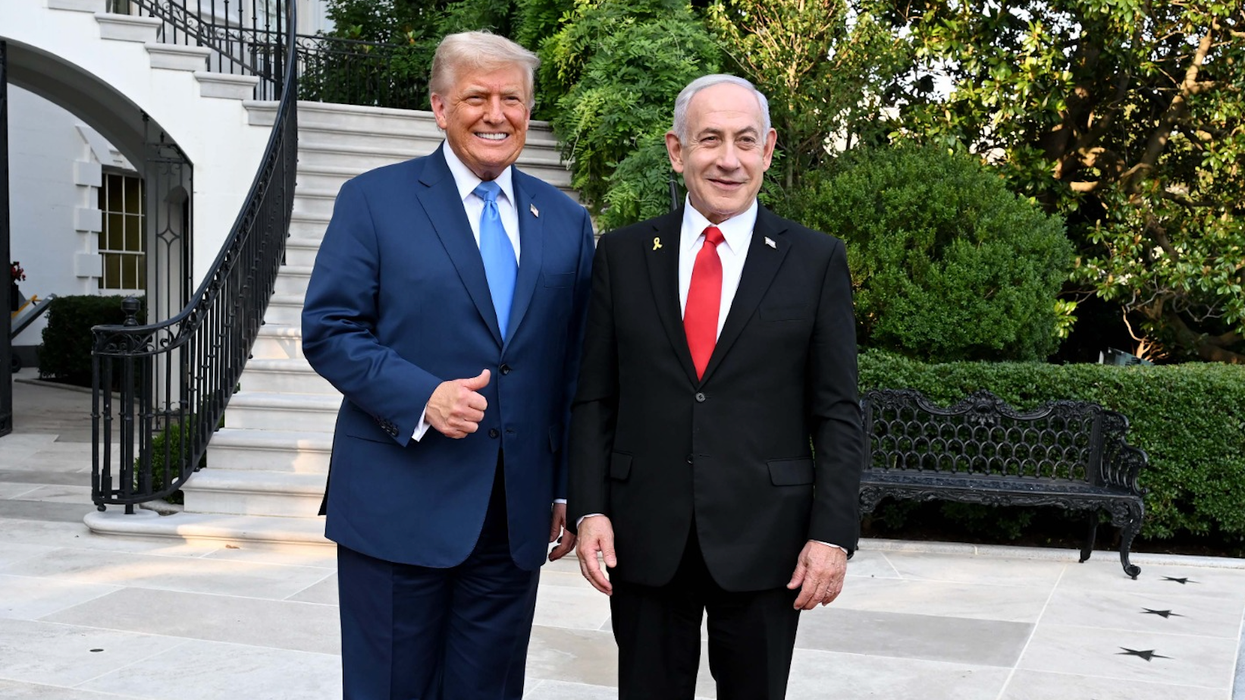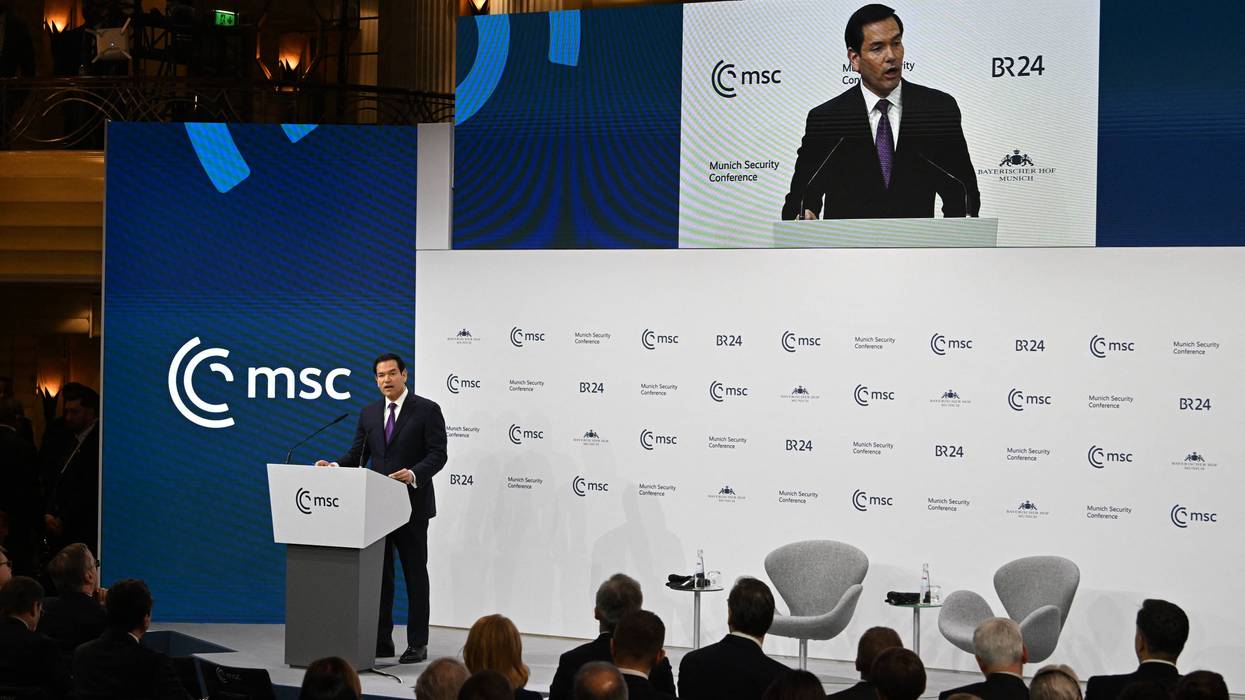How Deadly Are Dying Animals? Trump, Netanyahu, and War Against Iran
Carnage in Iran can't stop the inevitable decline of the US and Israel.
When I was small my mother warned me never to approach a sick animal. The dying ones, she said, are the deadliest of all.
That hasn’t been my experience; most of the dying creatures I’ve encountered just want a quiet place to pass their final hours. The source of my mother’s anxiety was closer to home than she had yet to recognize, but her fear was palpable. She was haunted by the vision of her curly-haired child falling prey to some sickly, snarling, yellow-eyed feral creature with nothing left to lose. That’s a mother’s worst nightmare.
Flash forward to February 28, 2026. Dozens of schoolchildren were reported dead in “one of two strikes that appear to have hit schools since US and Israeli warplanes launched their attack on Iran around 10:00 a.m. local time.” It was a mother’s worst fear come true, many times over.
Why would Israel and the United States kill children? The genocide in Gaza has made it clear that neither country is shy about the systematic extermination of the very young when it serves their strategic interests. These deaths, however, seem to be the products of tactical indifference rather than intentional annihilation. The girls’ school was near an Iranian naval base, and the high school was in the neighborhood where former Iranian President Mahmoud Ahmadinejad lived and was targeted by bombers.
Every empire in history has eventually turned against its own people, and always at the same historical moment: right before it dies.
This is how dying animals behave in a mother’s nightmare. They’re not looking for human children to kill—not the way an airborne raptor or an Israel Defense Forces soldier would. They simply lash out blindly in a desperate fight against the inevitable. Sometimes children get in the way.
Yes, Ayatollah Ali Khamenei is dead. Big deal. Others like him were already prepared to step in.
Our political culture is naive, almost childlike, in its attachment to the “great man” theory of history, with the “evil man” as its shadow side. Powerful figures do sometimes alter history, but only within those timeworn channels Alfred Tennyson called the “ringing grooves of change.” Khamenei’s power began with the US overthrow of the Iranian government in 1953, which set the stage for Iran’s current theocracy. The brutality of the Shah only hardened the steely resolve of Khamenei’s predecessor, who cast aside pro-democracy Ayatollah Hossein Ali Montazeri to put Khamenei in power. If it hadn’t been him, it would have been someone equally hard-lined.
US President Donald Trump and Israeli Prime Minister Benjamin Netanyahu are merely the latest leaders to be vomited up from a groove whose name is “colonialism.” Its source is not the culture or beliefs of ancient Jewish tribes. This groove traces back to the chieftains and pagan shamans of pre-Christian Europe. It rings with the sound of cauldrons and cannons and the church bells of the inquisitor. If some of its own children must be sacrificed, too, so be it.
Once again, pro-democracy protesters have been betrayed by US-made bombs. Attacks by foreign countries almost always strengthen their current leadership and weaken protest movements. There’s no reason to think this time will be any different. Khamenei is almost certainly more powerful in martyrdom than he was in the last months of his life. The protesters must now wait for the inevitable betrayal. May they find solidarity in just people around the world.
As-yet-unconfirmed reports suggest that the bombers have targeted some of the leaders who are best positioned to form an independent government. That wouldn’t be surprising. The US and Israel don’t want an independent Iran. They want a vassal.
But wait, you say. Israel and the United States aren’t dying animals. They’re very much alive and will be for the foreseeable future. Don’t be so sure. Netanyahu has been clinging to power for years to avoid prosecution for a litany of corruption charges. Trump was also threatened by multiple prosecutions before winning re-election. Both men, having feasted lavishly on ill-gotten gains, were desperate to avoid the consequences of their own actions.
For Netanyahu, Israel’s future looks grim. Much of the world has turned against it. Public opinion is evolving from revulsion over its actions to doubts about its very legitimacy as a theocratic ethno-state. Public support for Israel, once considered immutable, has plummeted in the US and Western Europe, especially among younger people who are more likely to consider it an “apartheid state.”
Israel, dependent on Western largesse, is likely to face a critical decision when these generations assume power: become a truly democratic state that ends radicalized privilege or remain an unsustainable international pariah. Either way, the clock is almost certainly ticking on the era of Eretz Israel envisioned by Zionism’s founders. It may take decades, with great bloodshed along the way, but this change seems increasingly likely.
Trump and Netanyahu may parade before the cameras like winners, but they carry the stink of losers—moral, spiritual, and tactical losers.
This is not an outré idea. Israel’s military and political leaders see this future almost as clearly as independent observers do. No wonder they’ve become increasingly open in their violence. It’s a sign of desperation as well as hate.
The United States may not disappear as a nation in the foreseeable future. But its global dominance and that of its elites will end, and probably soon. That prospect fills its current leaders with existential dread. Billionaires build airstrips in the Hamptons and rehearse the apocalypse in mountaintop retreats. Politicians try to seize control of oil-rich nations through brute force and feed the fantasy that exorbitant military spending can crush the spirit of independent peoples.
As the philosopher Antonio Gramsci wrote, “The old is dying and the new cannot be born; in this twilight, a great variety of morbid symptoms appear.”
Richard Nixon said this when he tried selling an equally delusional war to the American people: “If, when the chips are down, the world’s most powerful nation, the United States of America, acts like a pitiful, helpless giant, the forces of totalitarianism and anarchy will threaten free nations and free institutions throughout the world."
The “forces of totalitarianism and anarchy” are us. Every war the US has fought in the intervening half century has been a strategic and military failure. The United States has become a pitiful, violent giant—lethal and proud, but pitiful just the same. It spends itself into social oblivion for military machinery. It turns the technology of human suppression against its own population with increasing ferocity. As inequality surpasses that of the Gilded Age, software surveils our every move as drones and helicopters hover in the sky.
Every empire in history has eventually turned against its own people, and always at the same historical moment: right before it dies.
Trump and Netanyahu may parade before the cameras like winners, but they carry the stink of losers—moral, spiritual, and tactical losers. They’re pitiful because they’re desperate, and they’re desperate because their realms are dying. The grief of mothers and fathers means nothing to creatures such as these.
Here’s silent whisper for the wounded and discouraged, the grim-faced and the grieving, the unseen victims in Palestine and Yemen and Iran and around the globe: May they see with their hearts that time is running out for the Trumps and Netanyahus of their hearts. May they take comfort in the inevitability of their fall.
Yes, they’re still deadly. Of course they are. They’re killers. But so was John Wayne Gacy, and he was a clown.


